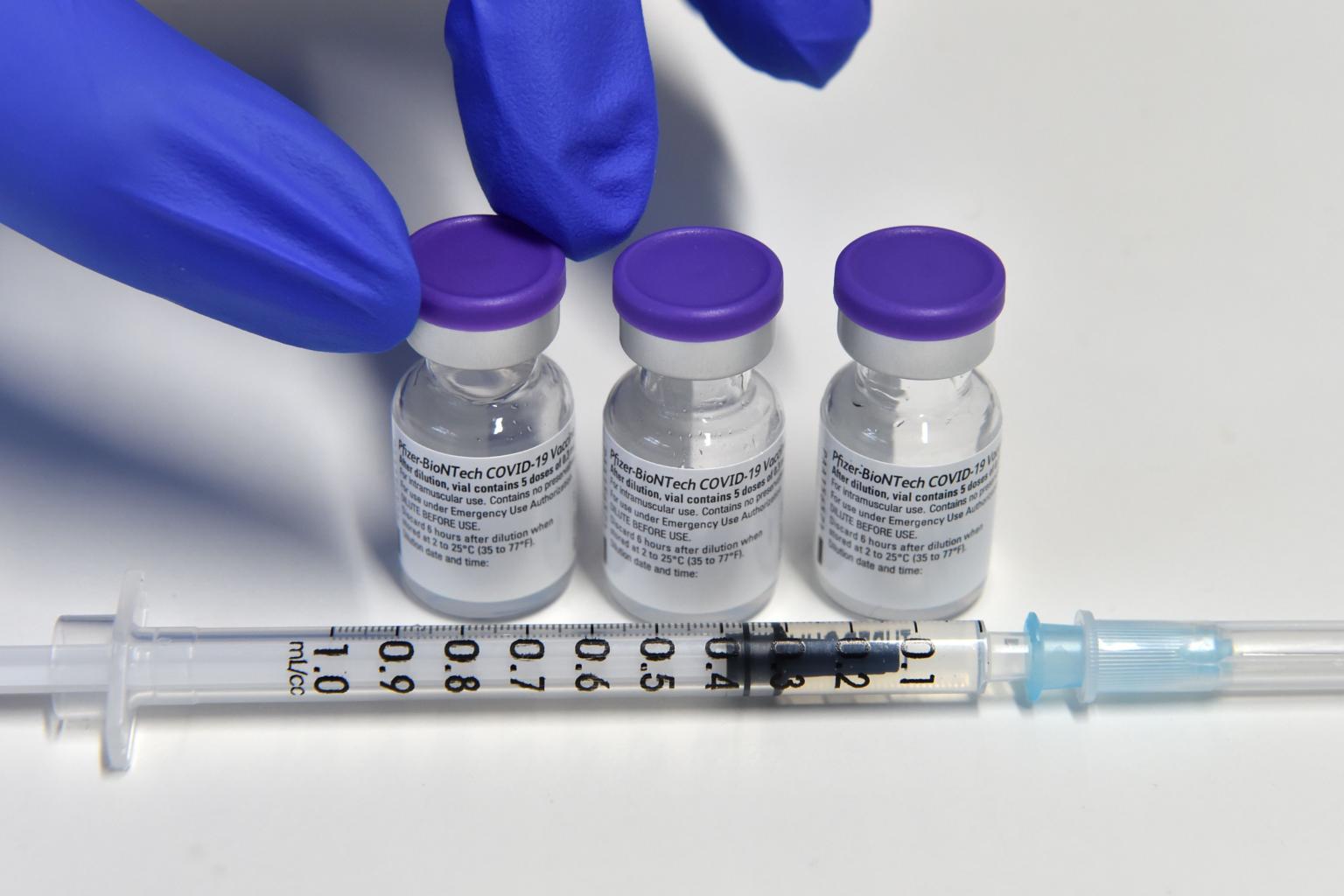Single dose of Pfizer Covid-19 vaccine gives two-thirds protection, data suggests
Sign up now: Get ST's newsletters delivered to your inbox

Two doses of the Pfizer vaccine saw protection rise to between 79 and 84 per cent, depending on age.
PHOTO: AFP
Follow topic:
LONDON (BLOOMBERG) - One dose of the Pfizer-BioNTech vaccine offers two-thirds protection against coronavirus, data seen by the UK government suggests.
Early findings from the UK's vaccination programme, due to be released within days, show that the first dose reduced the symptomatic infection risk among patients by 65 per cent in younger adults and 64 per cent in over-80s, a person familiar with the matter said.
The data, first reported by The Sun newspaper, showed that two doses of the Pfizer vaccine saw protection rise to between 79 and 84 per cent, depending on age. The AstraZeneca vaccine offers similar protection, the newspaper said.
While efficacy results are lower than those found in Pfizer's clinical trials, Boris Johnson's government is likely to hail the UK's first real-world data as a significant boost to its efforts to immunise the population. A successful mass vaccine rollout is key to the government's hopes of reopening the economy after months of lockdown.
More than 12.6 million people in the UK have so far received their first doses of either the Pfizer shot or the Oxford-AstraZeneca vaccine, according to latest data published on Tuesday. That includes more than 90 per cent of the over-80s.
Mr Johnson has set a target to immunise almost 15 million people by Feb 15, focusing on the most vulnerable groups and their carers. After that, his team will consider when and how to begin lifting the UK's third national lockdown, which has been in place for the past month and has compounded the economic damage already done by the country's deepest recession in more than 300 years.
From March 8, schools could begin to reopen, followed by the easing of other curbs. But while the UK's vaccine rollout is one of the most advanced in the world, the one big doubt is whether the shots will remain effective against new strains of coronavirus.
This week Mr Johnson led efforts to reassure the public that vaccines will still work to prevent the most severe illness and death from the South Africa variant. Some scientists are concerned that the strain is far more widespread in the UK and could derail the plan to lift restrictions.
Data from the real world rollout of the UK's two vaccines will be critical in determining how fast the government can begin to ease the lockdown.
Paul Hunter, professor of medicine at the University of East Anglia, said the early results were "quite amazing" and he believed gradual lifting of the curbs would be possible, starting with schools from early March.
"If these numbers are borne out, then they are very reassuring," Prof Hunter told The Sun. "If they are achieving 65% protection after three weeks with both jabs, then I think that's really good."
The government has deployed more surge testing of the population in parts of Lambeth, south London, in an attempt to trace and contain the new strain found there.

